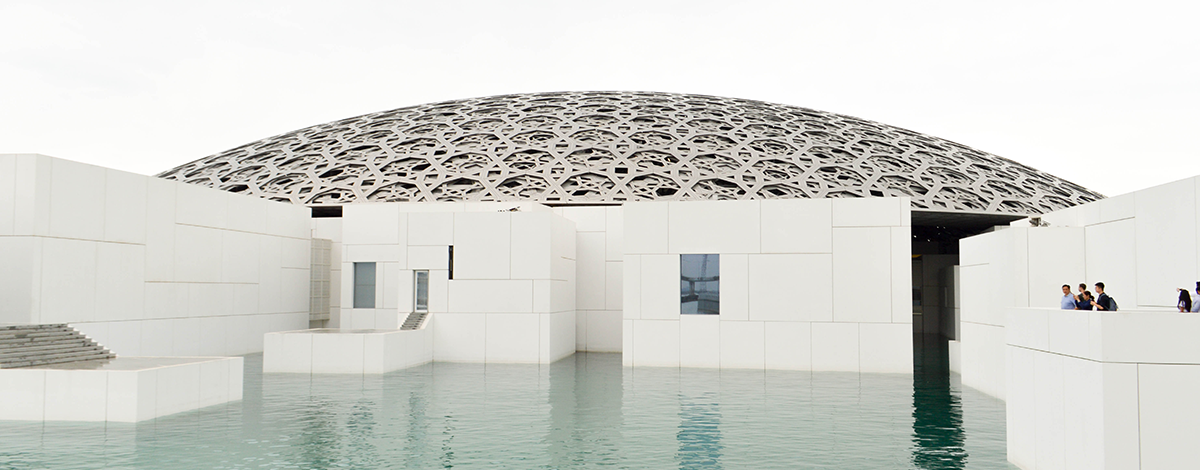Agnès Saal: “Offer French know-how to countries with a cultural project”
Culture is a broad concept. How do you define it?
Agnès Saal – Culture is first and foremost everything that gives meaning, that creates bonds, that expresses values, through a common heritage. It’s also a vision, an ability to create, invent and imagine.
 A very comprehensive, very integrated and therefore very inclusive vision of the term “culture”
A very comprehensive, very integrated and therefore very inclusive vision of the term “culture” 
With the upcoming Rendez-vous de l’Expertise meeting, we want to ensure the participants understand that we intend to address all the aspects of culture. This includes its heritage dimension – museums, historical monuments, archaeology, the archives, the inventory, architecture… – but also, more generally, everything related to creation: the performing arts (dance, music, theatre, street performances…), design, fashion, cinema and the audiovisual sector, publishing, but also video games! Because all technological innovations, when they give rise to an act of creation, can integrate the concept of culture. We promote a very comprehensive, very integrated and therefore ultimately very inclusive vision of the term “culture”.
The Rendez-vous de l’Expertise meeting will focus on the links between culture, development and stability. How are these three notions linked?
Agnès Saal – We know how much social ties can, at certain times in history, be weakened, especially during times of crisis – economic, health, social, political… And at these times, culture is a vehicle for shared generosity, a common vision, tolerance and dialogue with others. There is therefore a harmonious link between the notions of development and stability and the concept of culture. Firstly, in a given territory, stability requires the existence of factors that unite rather than dividing – and culture is part of this.
 Culture is a core component of social, democratic but also economic development
Culture is a core component of social, democratic but also economic development
Secondly, and it should be kept in mind, culture is a core component of social, democratic but also economic development: it does not simply give “extra soul”, it creates jobs and added value in the GDP of a country. More generally, it is also closely linked to social issues, such as gender equality and diversity, sustainable development issues and, finally, everything that serves to “make society”.
More and more countries, aware of the importance of culture for development, are launching projects in this field. On which subjects is France called on to support them and how can the expertise of French cultural operators be useful to them?
Agnès Saal – France is internationally recognised as a nation that focused on culture from a very early stage. We do, of course, have a very rich historical heritage, which draws hordes of tourists. But it doesn’t stop there: France very early on made culture a top political priority, which has allowed us to develop a series of major landmark projects (the Grand Louvre, the BnF, the Philharmonie, an extensive network of decentralised cultural institutions…), as well as specialised and hands-on expertise in this field. This commitment has materialised in some great successes, both nationally and internationally, such as the Louvre Abu Dhabi and the branches abroad of the Centre Pompidou.

The Louvre Abou Dhabi · © Francisco Anzola (FlickR).
It is for this reason that we are called on, often alongside Expertise France, to support cultural development projects. Today, it involves offering French expertise to countries with a cultural project, such as the creation of a new venue, a cultural mediation project, a reform of governance in the sector (organisation of the Ministry of Culture at the central and decentralised levels, regulation, support models for certain cultural industries, etc.). The possibilities are almost endless! And throughout France, there are public institutions, operators, cultural institutions with recognised know-how, which can be mobilised and promoted to help countries that request it.
Finally, how does the “International Cultural Expertise” mission, set up by the Ministry of Culture in October 2018 which you head, contribute to mobilising and promoting this wealth of French cultural expertise?
Agnès Saal – The initial idea behind the creation of this mission was to set up an interface between supply and demand for international cultural expertise. This is essential for increasing the effectiveness and visibility of our promotion action. Once the need has been received and analysed, in particular to verify its financial viability, we seek to identify the institution that has the most appropriate and operational expertise. One or several experts are subsequently mobilised to support the partner for the project. For example, this is the case in Ethiopia, where a Chief Architect of Historical Monuments has conducted a feasibility study for the restoration of the National Palace of Addis Ababa. The Château de Versailles is managing the definition of its scientific and cultural project.
 We act as a lead contractor for both the public and private cultural sphere
We act as a lead contractor for both the public and private cultural sphere
Two years after the creation of this mission, the results are positive, with about ten ongoing or planned projects. We are a reception point for requests and needs which we are informed about by various development cooperation partners – Agence Française de Développement, Expertise France, European Union… We act as an interface, a point of entry and dialogue, but also as a lead contractor for both the public and private cultural sphere, so as to offer the most appropriate services to meet the needs of partners.

